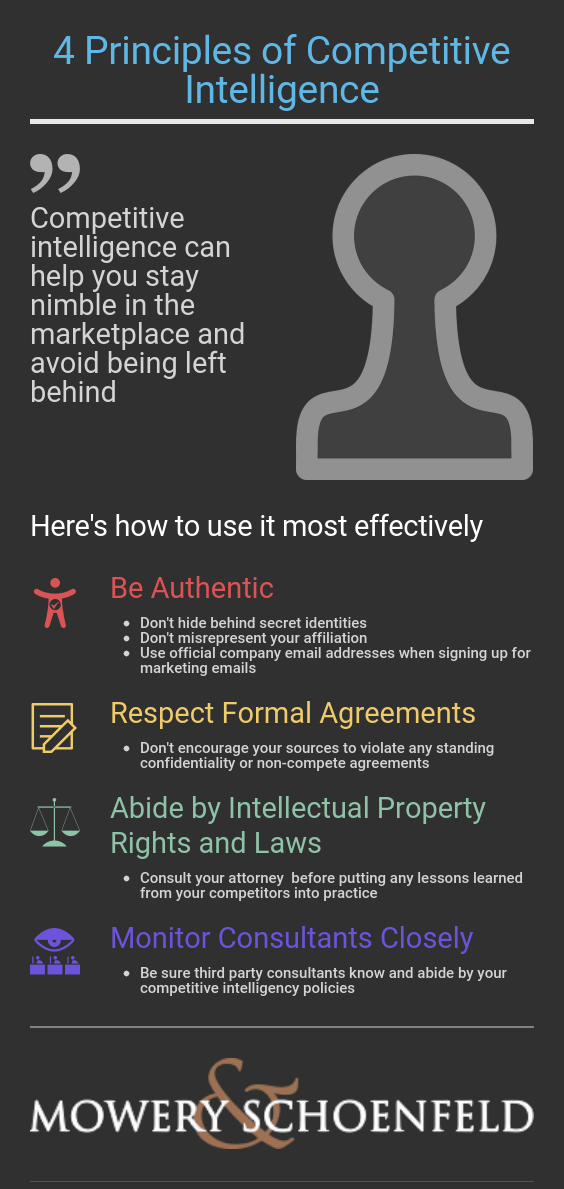We live and work in the information age. As such, the opportunity to gather knowledge about your company's competitors and industry as a whole has never been better. This practice - commonly known as "competitive intelligence" - can help you stay more nimble in the marketplace and avoid getting left behind as innovation surges forward.
Before you dive into competitive intelligence, however, it's important to establish a formal policy governing your efforts. If you've already gotten started, perhaps slow down and integrate a policy going forward. Generally, a competitive intelligence policy should follow four primary principles:
- Be authentic. When gathering information, don't hide behind secret identities or misrepresent your affiliation. For instance, if you sign up to receive marketing e-mails from a competitor, use an official company address, and, if asked, state "product or service evaluation" as the reason you're subscribing.
- Respect all formal agreements. In the course of gathering competitive intelligence, you or your employees may establish sources within the industry or even with a specific competitor. Be sure you don't encourage these sources, even inadvertently, to violate any standing confidentiality or non-compete agreements.
- Abide by all intellectual property rights and laws. As you may know, the technicalities of intellectual property law are complex. It can be easy to run afoul of the rules unintentionally. When accessing or studying another company's products or services, proceed carefully and consult your attorney before putting any lessons learned into practice.
- Monitor consultants closely. When it comes to competitive intelligence, the Achilles' heel of many companies isn't their employees - it's outside consultants. If you engage third parties for any purpose, be sure they know and abide by your policy.
With the internet booming and social media thriving, there's a wealth of information out there about your competitors. It can help you shape your strategic planning and stay in better touch with your industry. And don't forget about the traditional sources of information, too. We have even found that it is helpful to actively participate in your respective industry and trade associations. Many of our most successful clients are actively networking with their competitors where they can share best practices. This is a classic approach of the "abundancy theory", where one recognizes that there is plenty of work out there - we just have to get our share.

